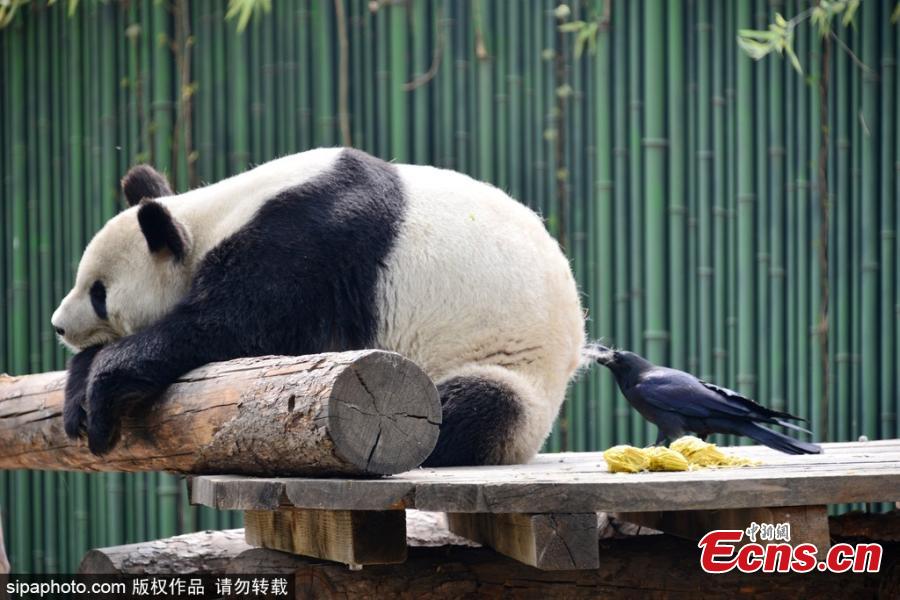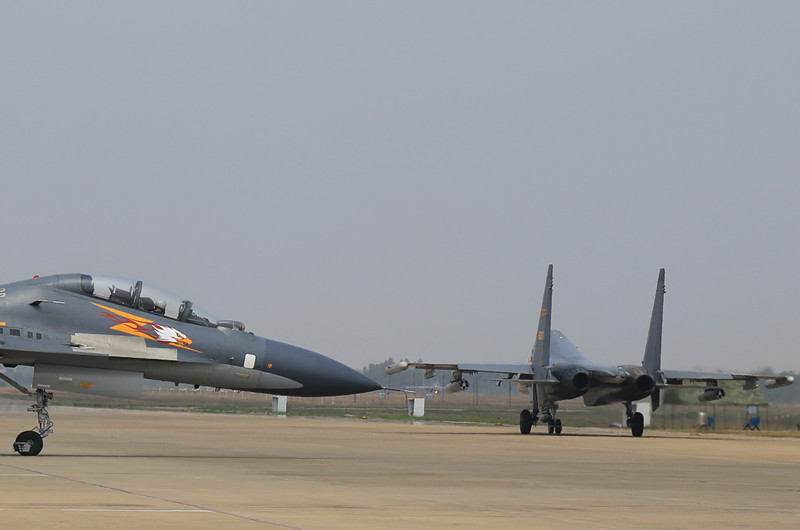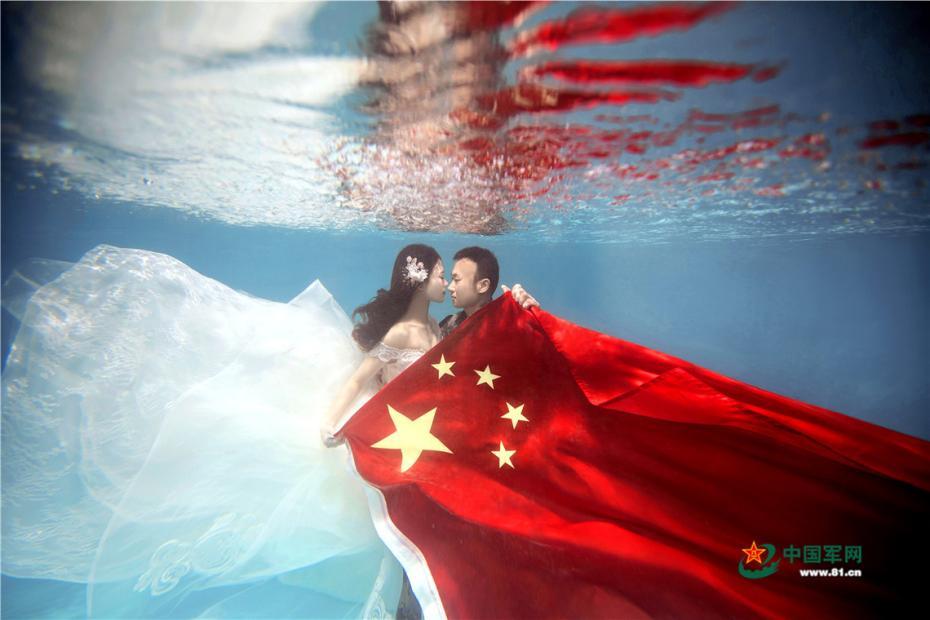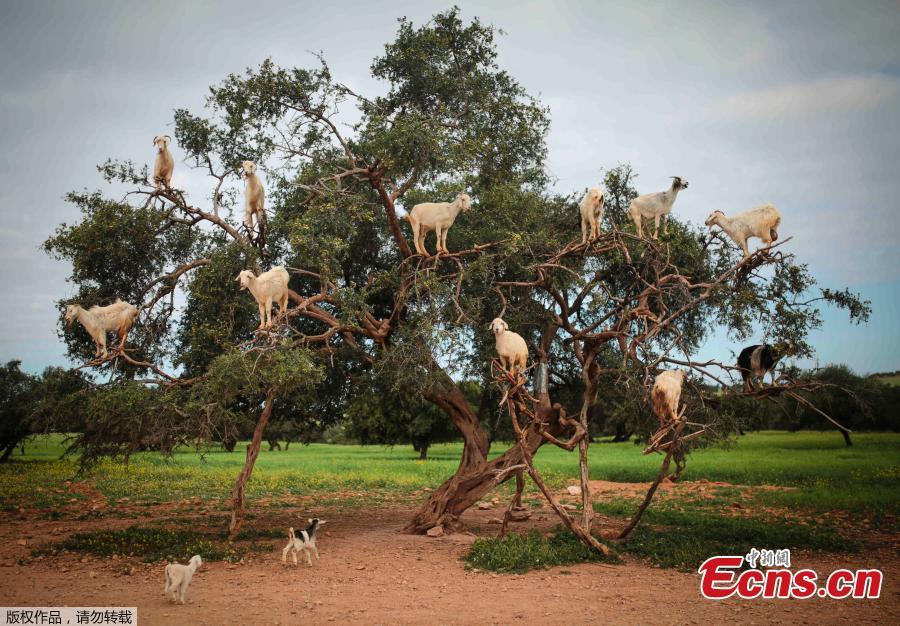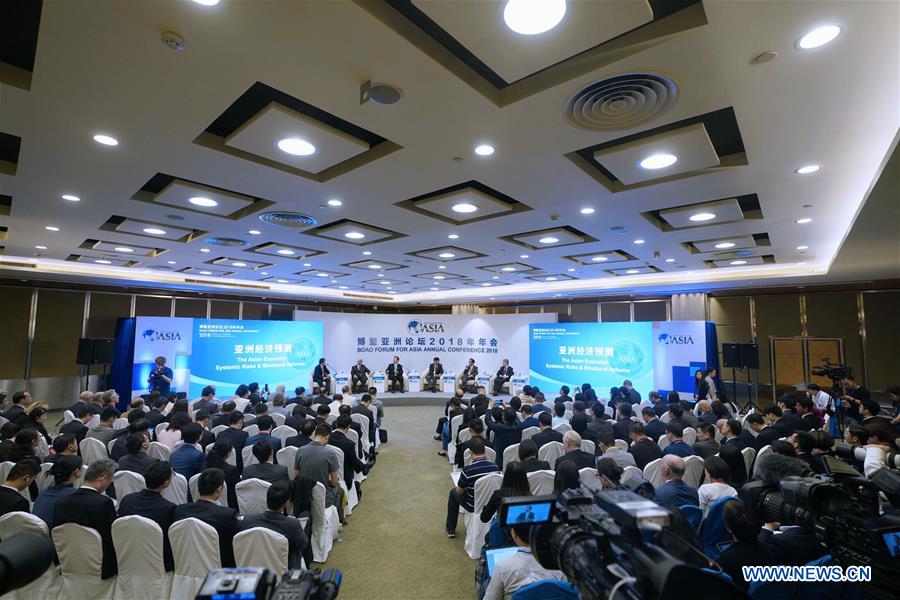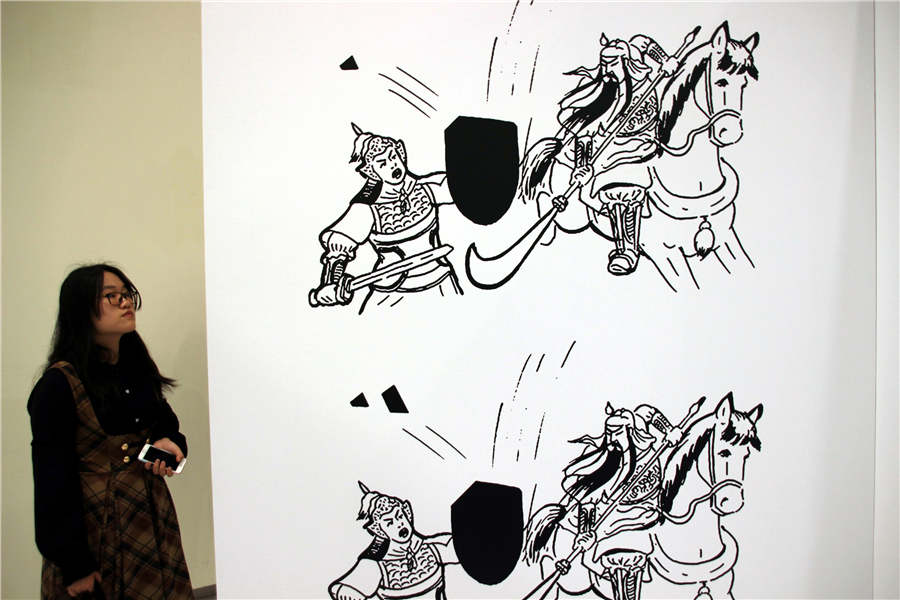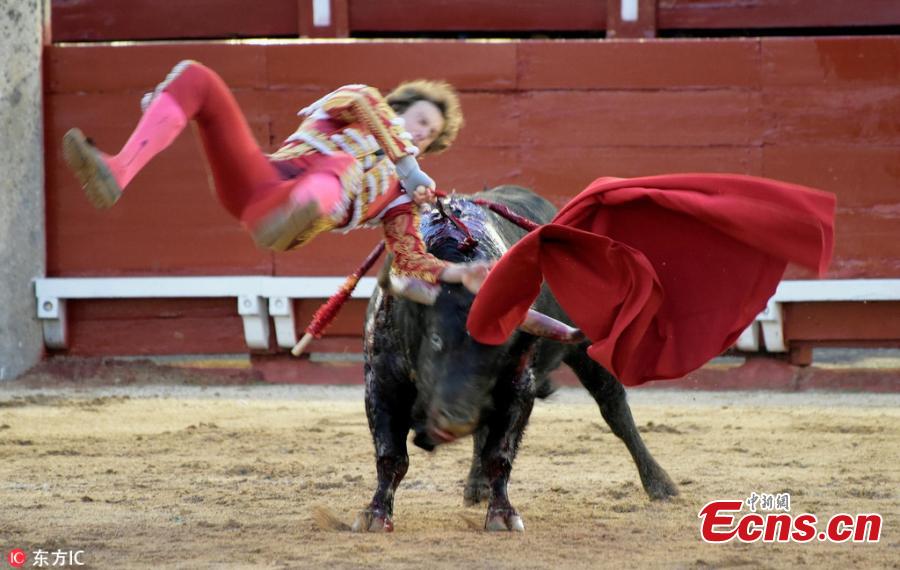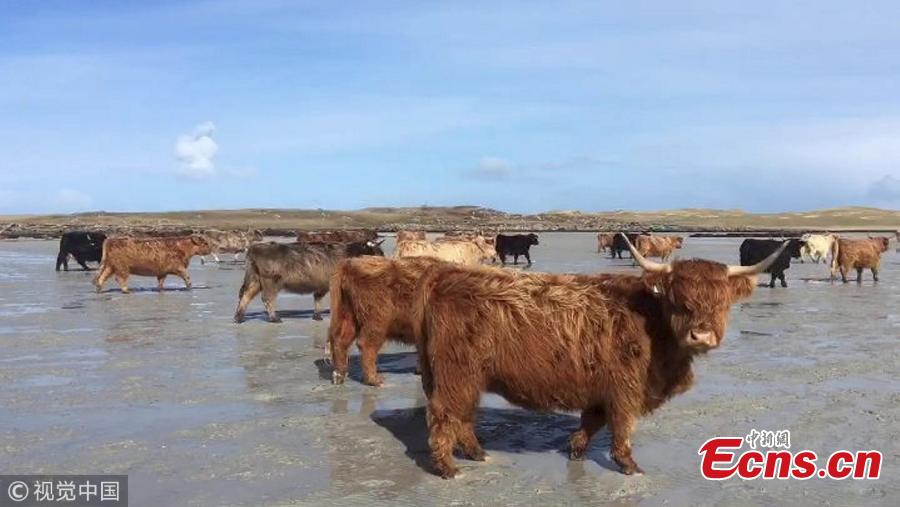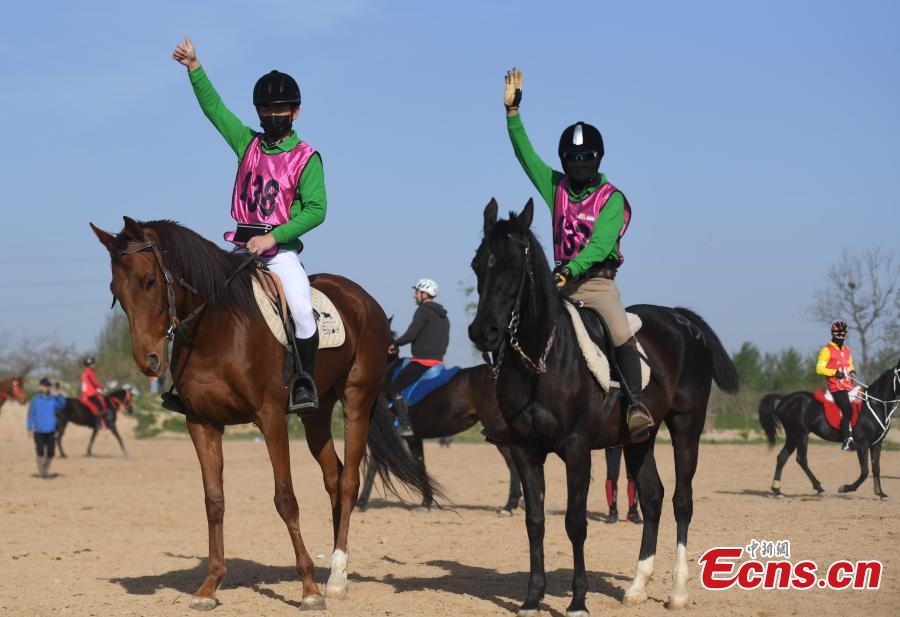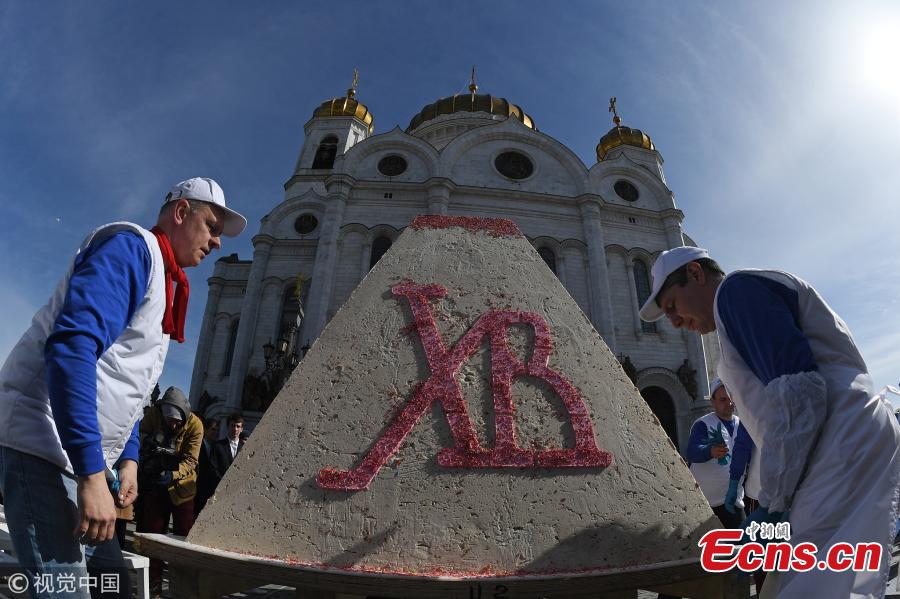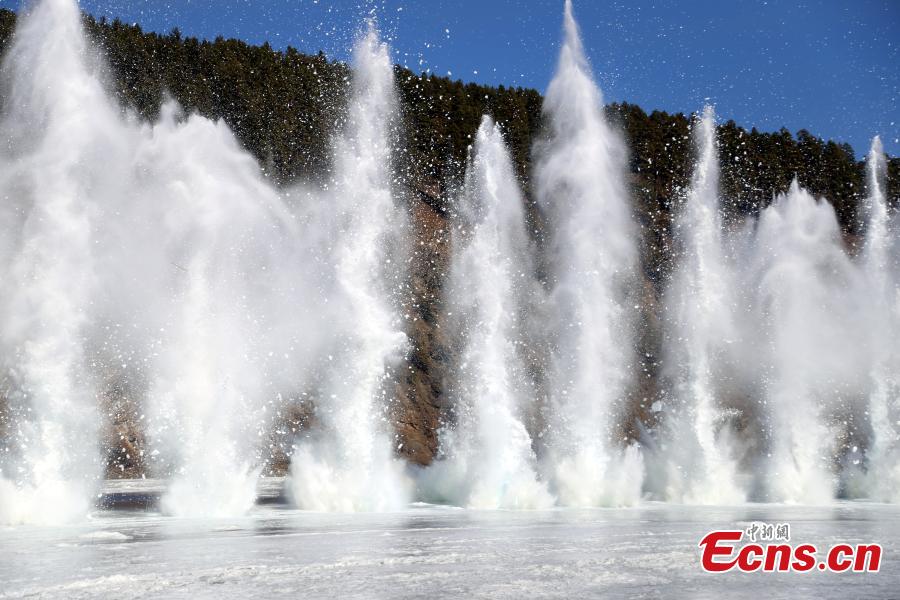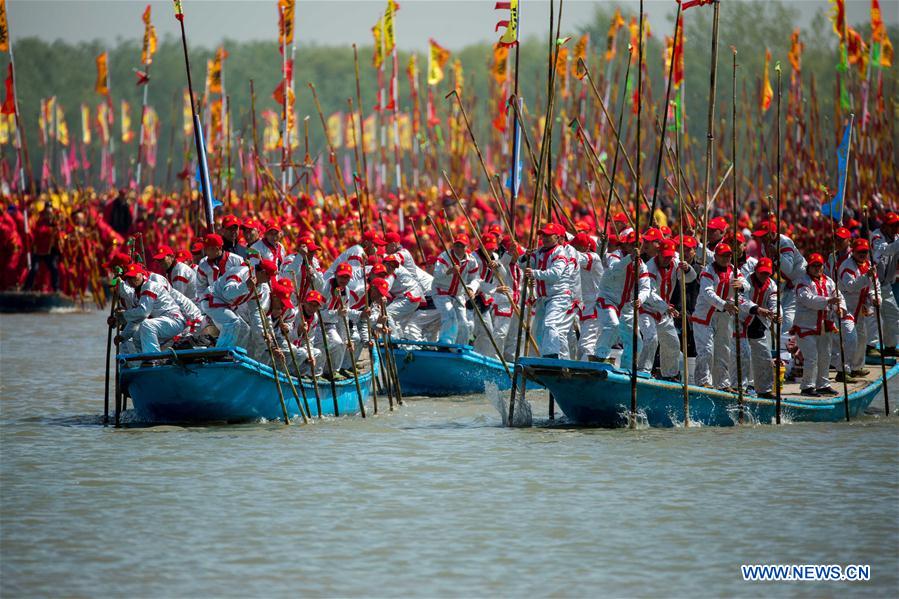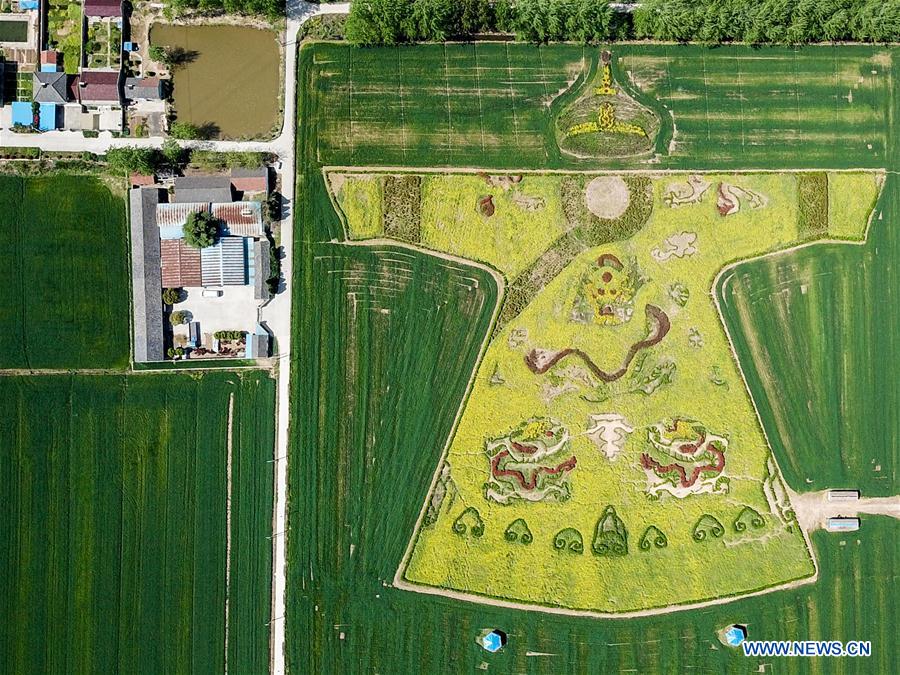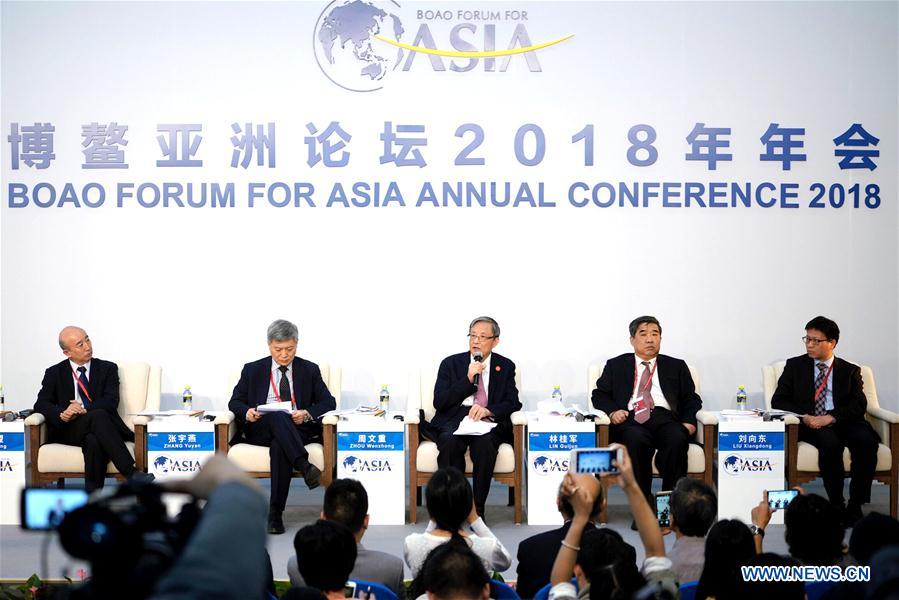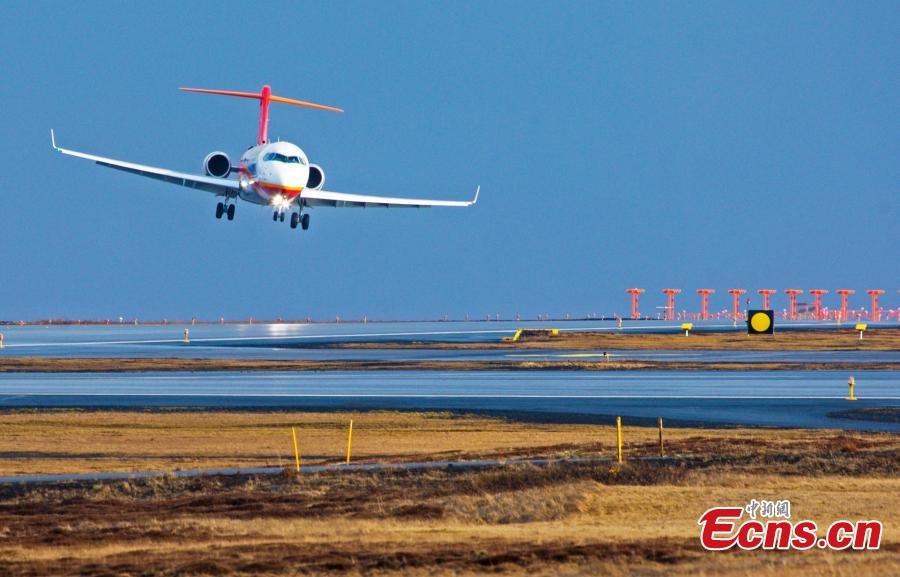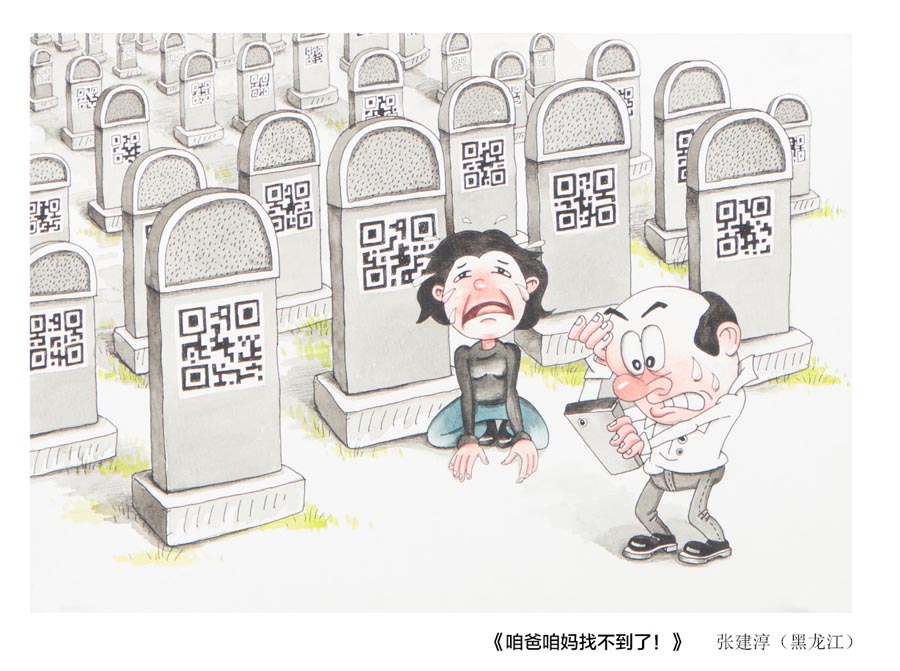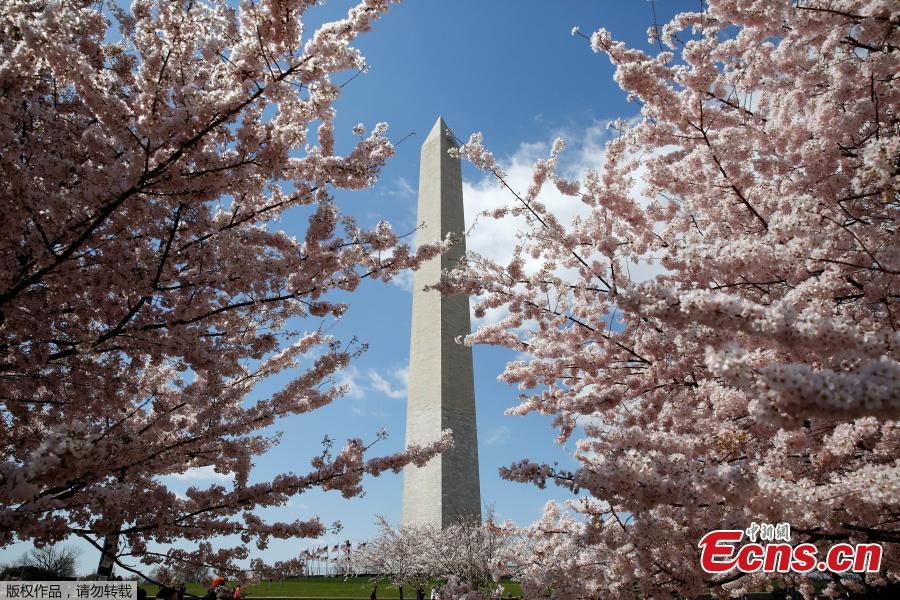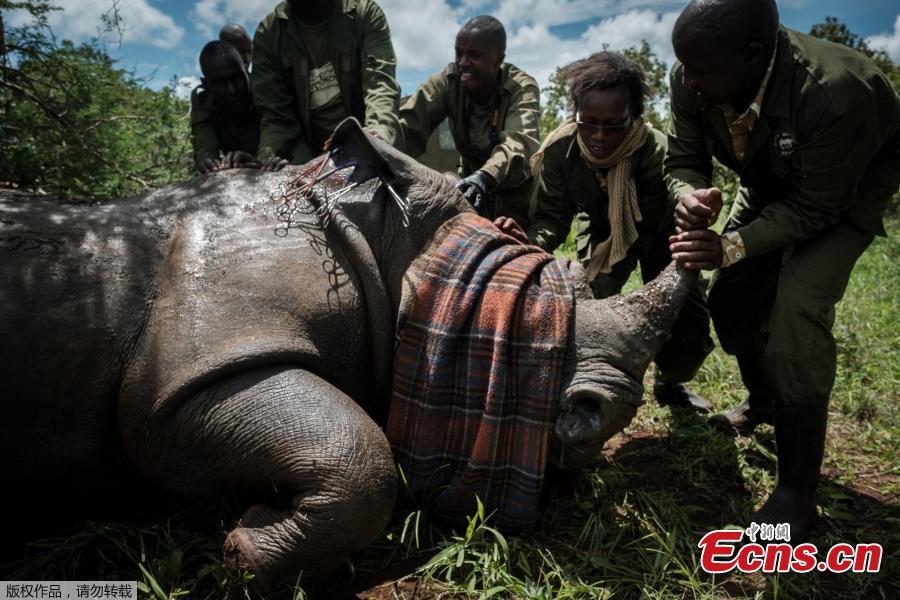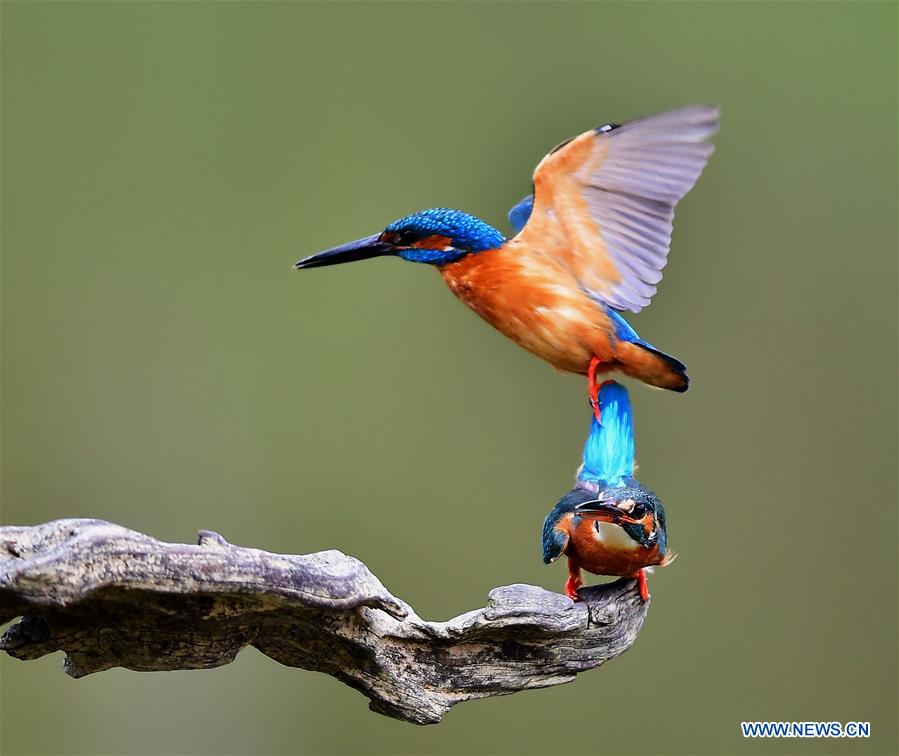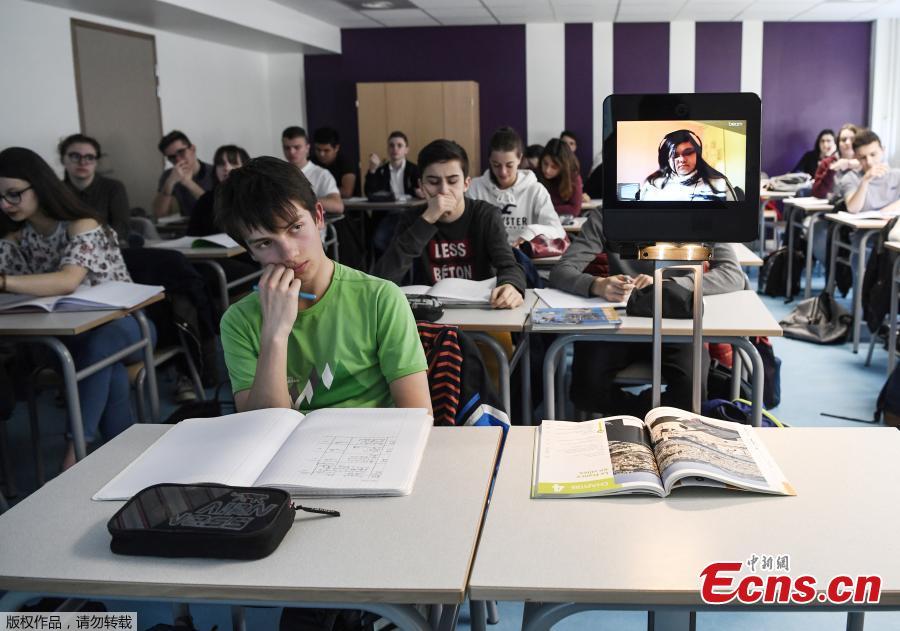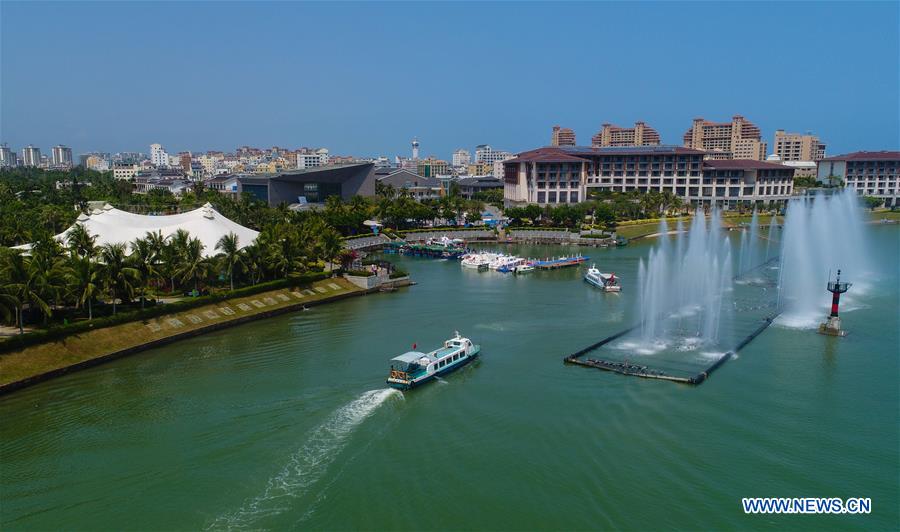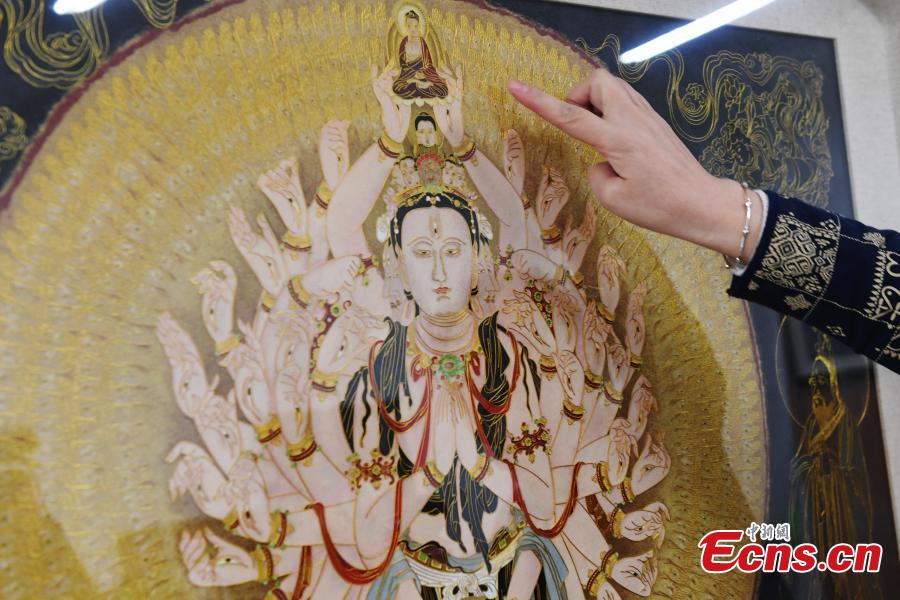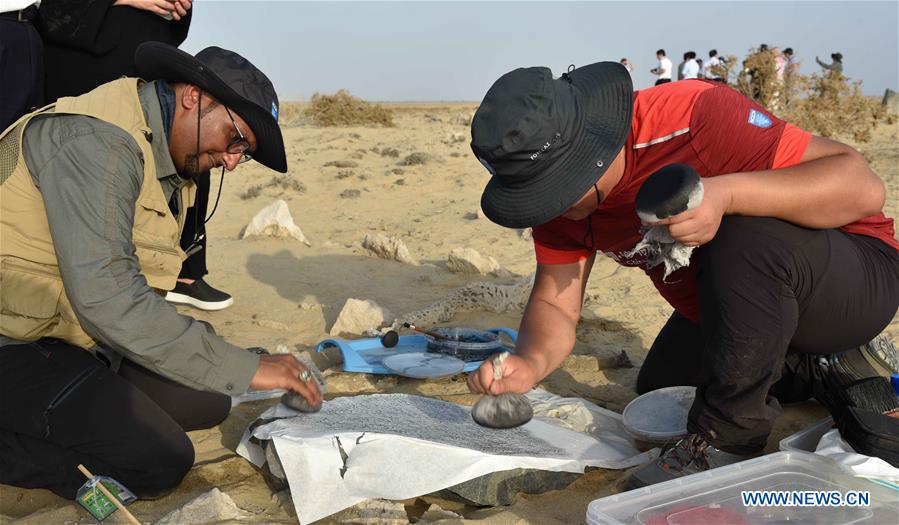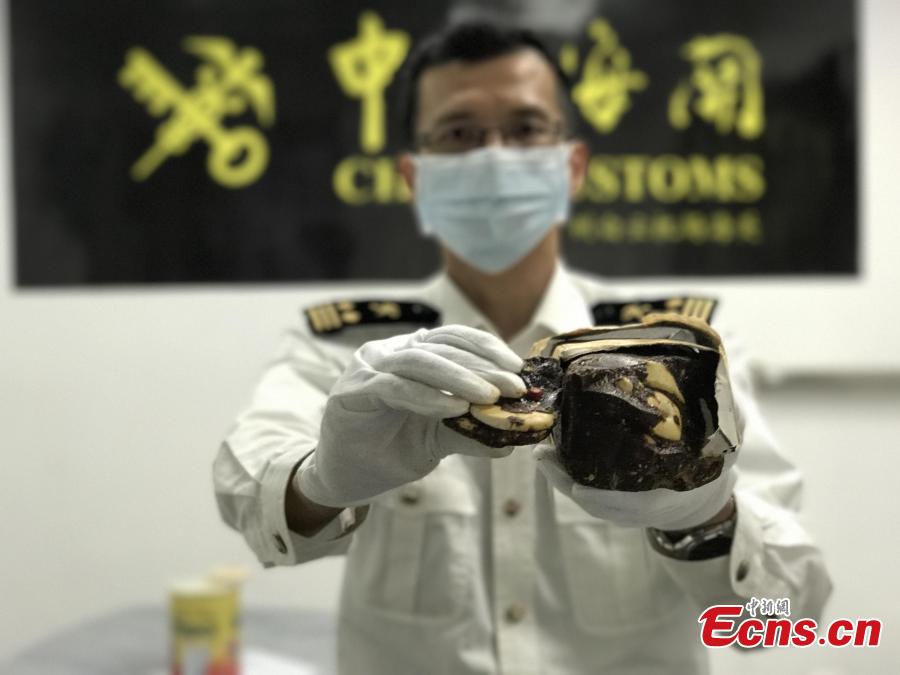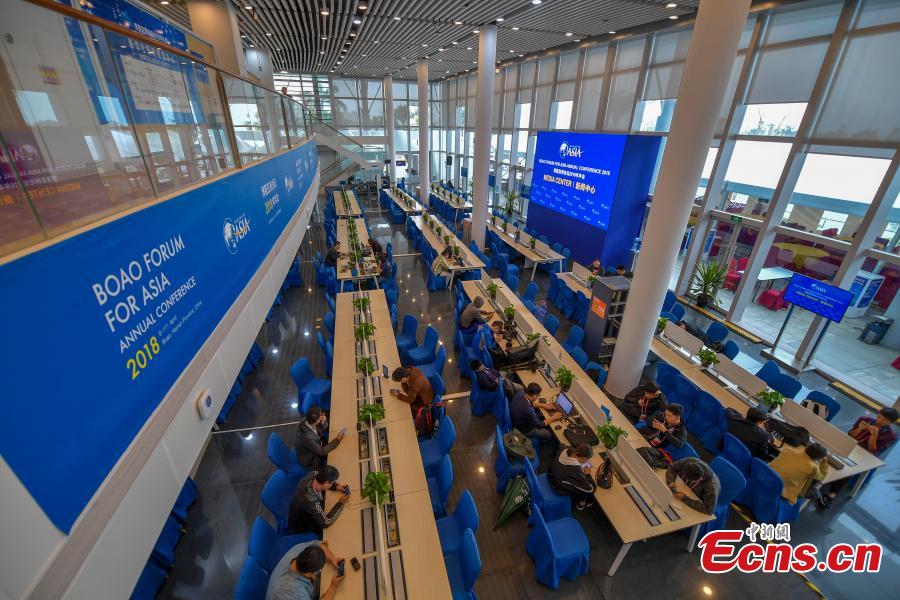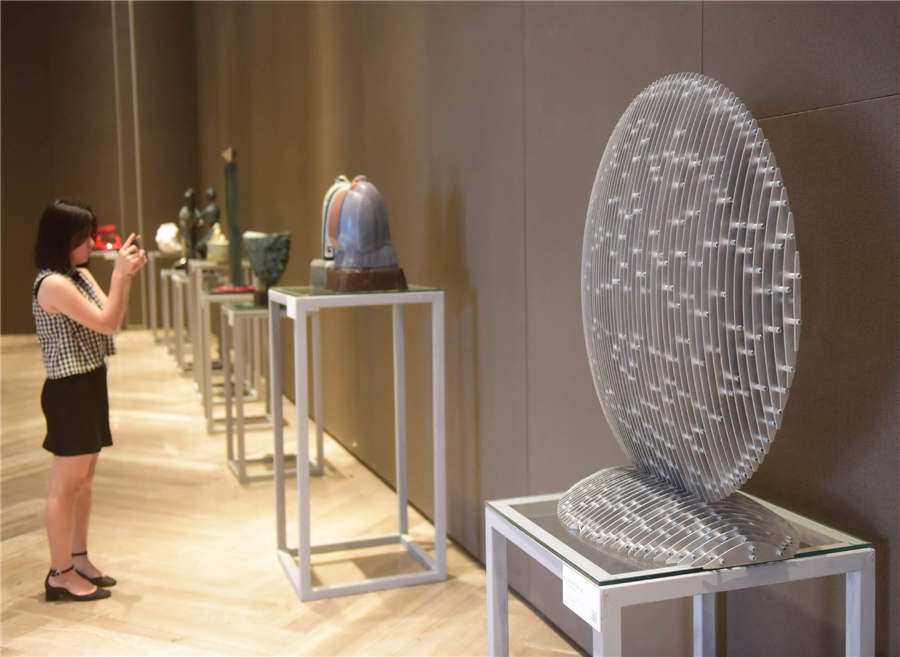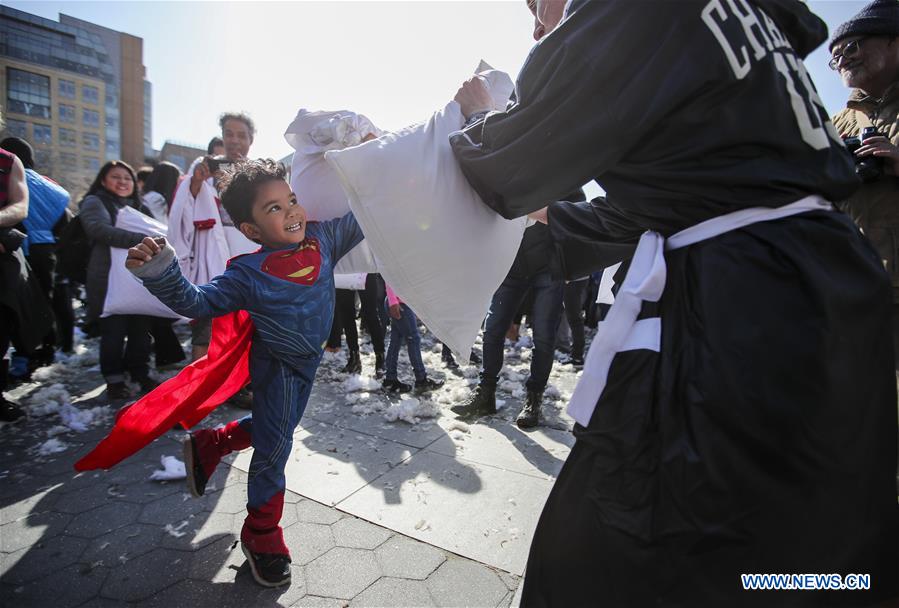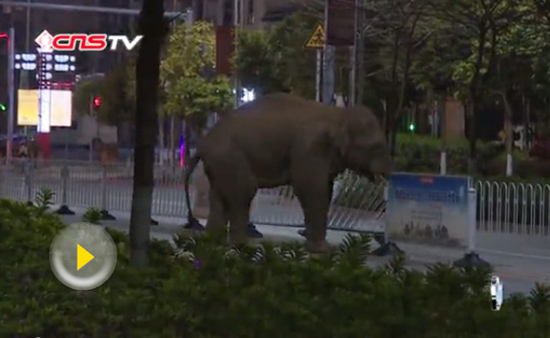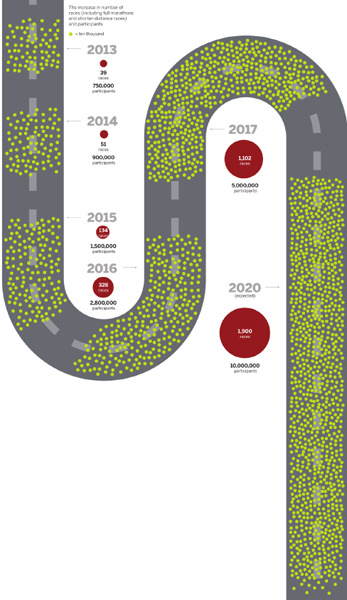
Numbers game
Meeting the demand for race spots can be an issue, with online lotteries often used to determine the starting lists.
For the March 25 Wuxi Marathon in Wuxi, Jiangsu province, 91,000 runners had signed up for the 30,000 spots two months before the starting gun.
Shui Tao, director of the CAA's marathon management office, hopes new races can help soak up the soaring demand.
"I don't think it's time to cool it off," Shui told China Daily at the launch of the Fairy Coast International Marathon, which will be held on July 1 in Haiyang, Shandong province.
"All the events we are overseeing now only cover half of the cities in the country. We still have new territories to explore on the country's running map."
Figures in China still pale in comparison to participation levels in countries such as the United States, however.
According to Running USA's annual report, 1,100 marathons were held in the US in 2016, finished by 507,600 runners. The respective figures in China were only 173 and 268,900 last year.
The central government's call to expand its mass fitness campaign has simplified the approval procedure for hosting grassroots sporting events, allowing more diversified races to be organized at regional level, said Shui.
Accessible addiction
Running's accessibility, affordability and sociability are key to its popularity, according to experts.
"No other sport has a lower entry requirement than running," said Shi Chunjian, a former CAA official and now a race organizing consultant.
"All you need is a pair of running shoes and you can go hit the road, regardless of age or gender.
"There's a strong sense of accomplishment after finishing a run, whether it's a 5 km or a marathon, and that's proving highly contagious thanks to social media. Once you take up running, it's easy to contact like-minded enthusiasts on social networking platforms such as WeChat or Weibo."
Bragging about your latest marathon feat has become a thing on social media, as evidenced by the 100 million-plus views of photos and posts bearing the hashtag #Wuxi Marathon# on Weibo on the day of this year's race.
Meanwhile, local governments are using races, especially televised ones, to promote tourism in their respective areas.
"Nothing compares to a marathon in terms of showcasing local landscape for as long as three hours on national TV, so no wonder more and more second-or third-tier cities are keen to land races," said Wu Hongtao, a senior executive at Infront China, a major sports organizing and promoting agency.









